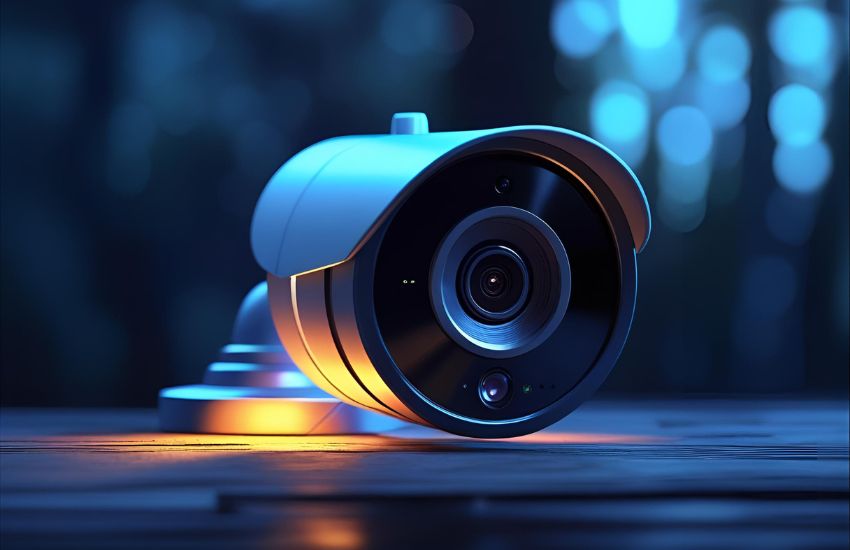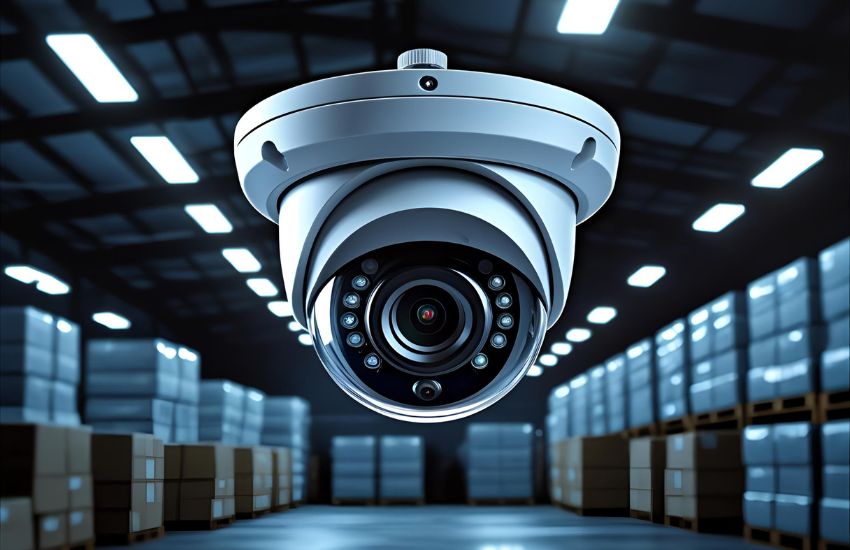A security system’s effectiveness hinges on its ability to reliably capture and store crucial footage. The digital video recorder (DVR) serves as the backbone of this process, acting as the central recorder that manages video input from analog cameras and IP cameras alike. Whether you operate a 4K camera system or use 1080p analog cameras, a well-designed DVR system ensures your footage is securely saved onto a hard drive—often with capacities like 2TB to accommodate extensive recordings.
Enhance your surveillance system with a reliable security DVR that ensures consistent video recording, efficient person vehicle detection, and dependable local storage. Using wired technology, these systems offer stability and security with motion alerts and analog compatibility. Maximize your channel capacity and enjoy seamless monitoring with advanced features that protect your property day and night.
This blog will explore how a reliable security DVR enhances your camera system’s performance, the benefits of combining analog and IP technologies, and the considerations for choosing the right hard drive and recording specifications for your unique security needs.
Choose the Right DVR System for Your Security Camera Setup

Selecting the ideal DVR system is crucial to maximizing the effectiveness of your surveillance network. To ensure you invest in the right solution, you need to understand the key features and compatibility factors that define a high-quality DVR security system.
Understanding DVR and Network Video Recorder Differences
A traditional DVR recorder primarily supports analog security cameras, converting analog signals into digital format for recording and playback. In contrast, a network video recorder (NVR) handles network video from IP cameras, offering more flexibility in installation and often higher resolution. Depending on your current camera setup—whether you rely on analog security cameras or a mix of IP cameras—you must choose between a surveillance DVR or an NVR to maintain system efficiency.
Evaluating DVR Recorder Features and Capacity
When selecting a DVR security system, consider the number of channels it supports. For example, a 12 channel DVR with 2-way audio allows you to connect multiple cameras and communicate through your system if needed. Additionally, storage capacity plays a vital role; a 2TB hard drive is often sufficient for most CCTV DVR setups, but your requirements may vary depending on video quality and recording duration.
Compatibility and Integration with Your Security Camera Recorder
Your chosen security camera recorder must be fully compatible with your existing cameras and infrastructure. For analog security camera setups, a CCTV DVR is essential to ensure smooth video capture and playback. In hybrid systems, integrating both analog and IP cameras requires a DVR security system capable of handling mixed inputs without compromising performance.
See more about...Security Camera App: DVR
Digital Video Recorder vs Network Video Recorder in Modern Security Systems

When building a modern surveillance system, choosing between a Digital Video Recorder (DVR) and a Network Video Recorder (NVR) is a critical decision that directly affects performance, flexibility, and compatibility. Understanding how each recorder functions helps you tailor your system to meet specific security needs.
Using a digital video recorder is ideal for traditional analog camera setups. A DVR connects to cameras through coaxial cable, converting incoming video signals into a digital format for recording and playback. This setup is well-suited for environments where you already have existing coaxial infrastructure. A CCTV DVR is commonly used in residential properties and small businesses, often bundled with a 2TB hard drive or DVR with 1TB hard drive for local storage. These systems support features such as smart motion detection, night vision, and playback of high-resolution footage—sometimes up to 4K Ultra HD, depending on the model.
In contrast, an NVR system works exclusively with IP cameras, which transmit digital video signals via Ethernet or wireless connections. This offers greater flexibility in placement and higher image quality, often supporting resolutions up to 4K and advanced features like AI-driven analytics. NVRs typically support remote access, remote viewing, and smart home integration, making them an excellent fit for tech-forward installations. An 8 channel NVR with a 1TB hard drive and 8 camera support, or a 4TB hard drive for extended storage, can meet higher-end requirements.
Both systems use camera recorders to manage video surveillance and playback, but the infrastructure and camera types differ. A DVR camera setup is generally more affordable and easier to install for basic home security or wired 2K needs. On the other hand, wireless cameras, wireless security cameras, and wireless security systems often pair better with NVRs due to their network-based design.
If you’re upgrading from a basic camera DVR or CCTV DVR, transitioning to an NVR security solution might offer improved scalability and performance, especially for smart integrations. Whether your priority is securing a smart home, deploying deterrence cameras, or managing complex camera surveillance, selecting the right security recorder—paired with suitable ethernet cables, storage like a 2TB DVR, and remote access capabilities—ensures your system is reliable, responsive, and future-ready.
See more about…CMS DVR Software
Conclusion
In conclusion, selecting between a DVR and NVR depends on your surveillance priorities, infrastructure, and long-term scalability. DVRs are typically used with analog setups and rely on wired technology, processing unprocessed video from analog CCTV via CVBS or coaxial cable connections. These systems tend to be simpler and plug and play, making them ideal for users who want straightforward installation and local storage without depending on network connectivity.
On the other hand, NVRs operate on internet protocol and process video data digitally, offering enhanced features such as person vehicle detection, high-resolution streaming, and remote access. These systems offer more advanced capabilities, including intelligent motion alerts and greater flexibility in camera placement. Regardless of which path you choose, understanding channel capacity is essential, as it defines how many cameras your recorder can manage and support for video recording.
See more about…Light via DVR Alarm Output
Frequently Asked Questions (Enhance Your Surveillance System with a Reliable Security DVR)
What is the purpose of a DVR in a surveillance system?
A DVR (Digital Video Recorder) in a surveillance system is used to record, store, and manage video footage captured by analog security cameras. It converts analog signals into digital format, allowing playback, backup, and remote viewing. DVRs provide efficient video storage, scheduled recording, motion detection, and evidence preservation, making them essential for monitoring and security management.
What is the best DVR for security cameras?
The best DVR for security cameras is one that offers high-resolution recording, sufficient storage capacity, and remote access via mobile or web apps. Look for features like motion detection, backup options, and multiple channel support to connect several cameras. Brands like Hikvision, Dahua, and Swann are popular for their reliability, advanced features, and user-friendly interfaces.
What is a DVR?
A DVR (Digital Video Recorder) is a device used in surveillance systems to record, store, and manage video footage from security cameras. It converts analog signals into digital format, allowing easy playback, backup, and remote access. DVRs are widely used for monitoring, security, and evidence collection, providing reliable video storage with features like motion detection and scheduled recording.
What does DVR stand for in security?
DVR in security stands for Digital Video Recorder. It is a device used in surveillance systems to record, store, and manage video footage from CCTV cameras. DVRs convert analog signals into digital format, making playback, storage, and remote access easier. They enhance security by allowing continuous monitoring, reviewing past footage, and providing evidence in case of incidents.
